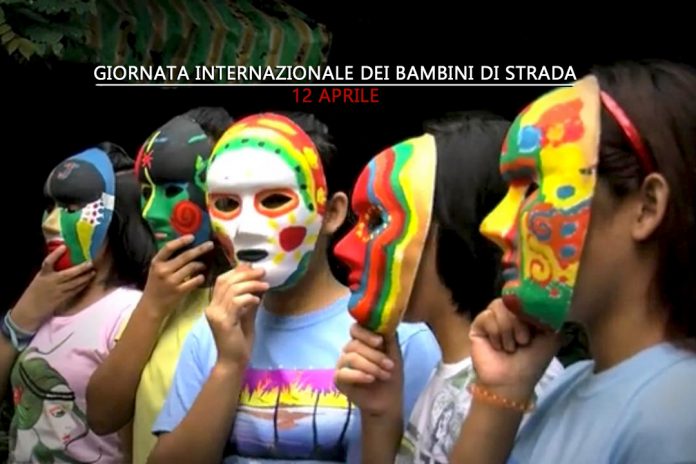Rome (Italy). The International Day of Street Children is celebrated on 12 April 2024, proposed in 2011 by the Consortium for Street Children (CSC), a global network that brings together various NGOs around the world to offer a future to street children and make people hear their voice.
It is an appropriate occasion to bring to light and give attention to many boys and girls who do not enjoy their essential rights: right to be fed; right to health and psychophysical well-being; right to have a home; right to education; right to life and to grow up in a family; right to have a nationality; right to play.
Pope Francis, addressing girls and boys in the Message for the First World Children’s Day, which will be held on 25-26 May 2024 in Rome, underlines their preciousness and uniqueness:
“I address it first of all to each one personally, to you, dear little girl, to you, dear little boy, because ‘you are precious’ in the eyes of God (Is 43:4), as the Bible teaches us and as Jesus has demonstrated many times . At the same time, I send this message to everyone, because you are all important, and because together, near and far, you demonstrate the desire of each of us to grow and renew ourselves. You remind us that we are all children and brothers/sisters, and that no one can exist without someone who brings them into the world, nor grow without having others to give love to and receive love from (cf. Fratelli tutti, 95)”.
The number of children who live or spend almost all of their days on the streets, as well as families, is unfortunately increasing for various reasons: war and conflicts, climate change, poverty, exploitation, mental illnesses, family separation, and others.
In the Institute of the Daughters of Mary Help of Christians, there are different types of works in favor of children, adolescents, and young people in precarious situations. In recent years, there has been an increase in reception centers, family homes, professional training centers that ensure the possibility of job placement, consultancy centers, etc.
There are various services offered in these works, all united by the commitment to offer them an integral education based on these elements: the centrality of the person; the relationship with the family; the educating community; networking.
In the Philippines, the intuition we had almost forty years ago to respond to the growing number of street children has now extended to several centers, both in cities and in agricultural villages. One aspect that is being pursued is that of giving young men and women the opportunity to be protagonists of changes, acting as spokespersons for children’s rights and organizing training meetings for local communities, with a view to greater attention to the protection of children’s rights. Some of those who were part of these works as recipients now work as social workers, teachers, and educators. Some also had the opportunity to talk about this situation at national and international levels.
Attention to children and young people in situations of hardship has many resonances in two paths inspired by Pope Francis and which the FMA Institute in General Chapter XXIV, took on: the conversion to integral ecology and the Global Educational Pact.
The path of conversion to integral ecology is realized through membership of the Laudato Si’ Action Platform which promotes 7 Objectives, including that of “answering the cry of the poor” (2nd objective). Street children are among the poorest due to the lack of fundamental rights and opportunities. The other Laudato Si’ Objectives – response to the cry of the earth, ecological economy, adoption of sustainable lifestyles, ecological education, resilience, and valorization of the community – are well integrated into the integral formation offered in all centers.
Regarding the Global Educational Pact, in the Centers coordinated by the FMA Institute, there is a belief in the importance of networking, both within the Institute and with other local, national and international institutions, individuals and groups. With the Global Educational Covenant, Pope Francis wants to promote a renewed commitment to the education of children and youth, not only in formal educational institutions, but also in non-formal educational settings, such as works dedicated to children, adolescents and youth in distress.
“The Global Educational Pact is an invitation to engage in a path of change, inspired by the culture of care, integral ecology and the building of fraternity and peace” (Zani V., Vademecum of the Global Educational Pact, 2020, p 7). The seven Commitments of the Global Educational Covenant – putting the person at the center, listening to the younger generations, promoting women, empowering the family, opening up to welcome, renewing the economy and politics, and guarding the common home – are in great harmony with the Salesian Educational System. It is the way to express the Educational Charism in a language understandable to today’s world.




















